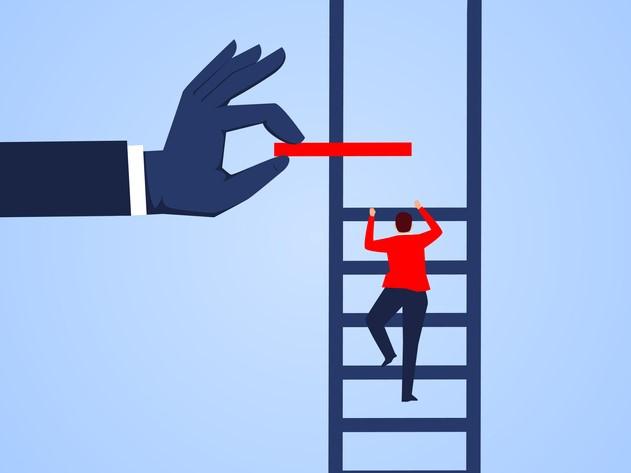
How to build unbreakable self-confidence: an academic’s guide

You may also like
Think of professional self-confidence as a stone castle. The stronger the castle is built, the harder it is to shake. But building professional self-confidence is a complicated process, relying on different components coming together.
I wrote an article that I thought would definitely be published – when it was rejected, I had to analyse my mistakes and discover how to get back on my feet. I rebuilt my professional self-confidence from the ground up. Here’s how I did it.
Set a target
Hard work on its own does not take us where we want to be. When I experienced poor results after working hard, it taught me how working without a clear target can diminish success and break professional self-confidence.
- Let’s prioritise self-care for the benefit of everyone
- Conversations around stress must move beyond ‘I’m fine, how are you?’
- Recognise work-life imbalance and restore resilience
The academic career journey is an adventure that can only be determined en route. On the way, we must make our own decisions and implement them. The balance of teaching, research and administrative duties will change from person to person, and we all approach busy periods differently. Let’s take this into consideration when determining our targets – setting realistic goals is the most important thing. Challenging ourselves creates great opportunity for academic improvement, but we need to widen our horizons slowly.
For example, if you have published two articles this year, the target for next year should not be publishing 10 articles. Taking on more than you can cope with and failing will damage your professional self-confidence. The important thing about setting targets isn’t to set the bar high, but to find a strategy based on what’s achievable under the specific circumstances. The more realistic targets you set, the more motivated you are to be successful.
Know yourself
Knowing ourselves helps us to discover strengths and weaknesses. For example, I know I struggle with time management. If you are like me and find yourself staying up all night before a deadline, my method might work for you too: create an imaginary earlier deadline for yourself. For example, I once marked my journal submission deadlines on my calendar a week in advance at the beginning of the academic year. This way, even though I finished the work last minute according to my own deadline, I actually had another week to complete it. This gave me a great opportunity to review my work.
Finding strategies to overcome your weaknesses will help you get over many obstacles with ease. Equally, promoting your strengths is a big source of motivation for building professional self-confidence. An academic with great social skills, for example, can build bridges between different disciplines.
When I was assigned as a faculty representative of a women’s studies centre, consisting of members from different departments, I was worried that I wouldn’t have the time and opportunity to carry out my own research work in my field of study. But, contrary to my expectations, I learned a lot outside my field and had the chance to combine it with my own expertise, helping to inform my work. While I assumed that women’s rights were the focus of my field, law, I’ve realised that there are significant intersections with many other fields. I’ve seen the tremendous benefits of collaborative efforts between different fields, such as medicine and law, to ensure women have access to their healthcare rights. This situation taught me that every field of science has a connection, close or distant, and can contribute to each other.
Resist and think positive
The competitive nature of academia means we can occasionally encounter criticism. But this should never discourage us. Criticism helps us to improve ourselves – it should never hold us back, but must be seen as a barrier that we need to overcome.
During my undergraduate studies, a lecturer wouldn’t let me complete the presentation task as part of the course, as she felt I was too nervous about speaking in front of the class. I felt disappointed at first, but then I realised it was pointless to avoid the challenge – I would have to learn how to speak in public sooner or later – and I insisted on making the presentation. This helped me become the accomplished public speaker I am today, by building my professional self-confidence in this regard.
Appreciate and reward yourself
Positive feedback from others is always wonderful. But the truly self-confident know how to appreciate themselves, without input from outside. Sometimes, taking a break can be the best reward, as it allows us to step back and see the whole picture. Don’t think of this as laziness, but as an opportunity for a fresh start. Instead of racing to achieve something as quickly as possible, focus on consistency and take breaks between projects to properly rest and reflect.
Make sure you do the best you can
The next draft of your project could always be better than the current one – but if you think like this, you’ll never finish. I find that continuously searching for more and obsessing over perfection slows me down, makes me feel like a failure and affects my motivation. Don’t let perfect be the enemy of good – when starting a new project, set a framework for yourself and do your best within those boundaries.
Setting realistic targets and clearly defining your strategy to hit these goals is the key to building professional self-confidence. When we work with awareness of our strengths and weaknesses, streamline our ambition and go in prepared for criticism, we’ve laid strong foundations to build upon. With these tools in our arsenal, the castle of our self-confidence is indestructible.
Ayten Erçoban Evren is a lecturer of constitutional law at the Faculty of Law, Near East University.
If you would like advice and insight from academics and university staff delivered direct to your inbox each week, sign up for the Campus newsletter.


